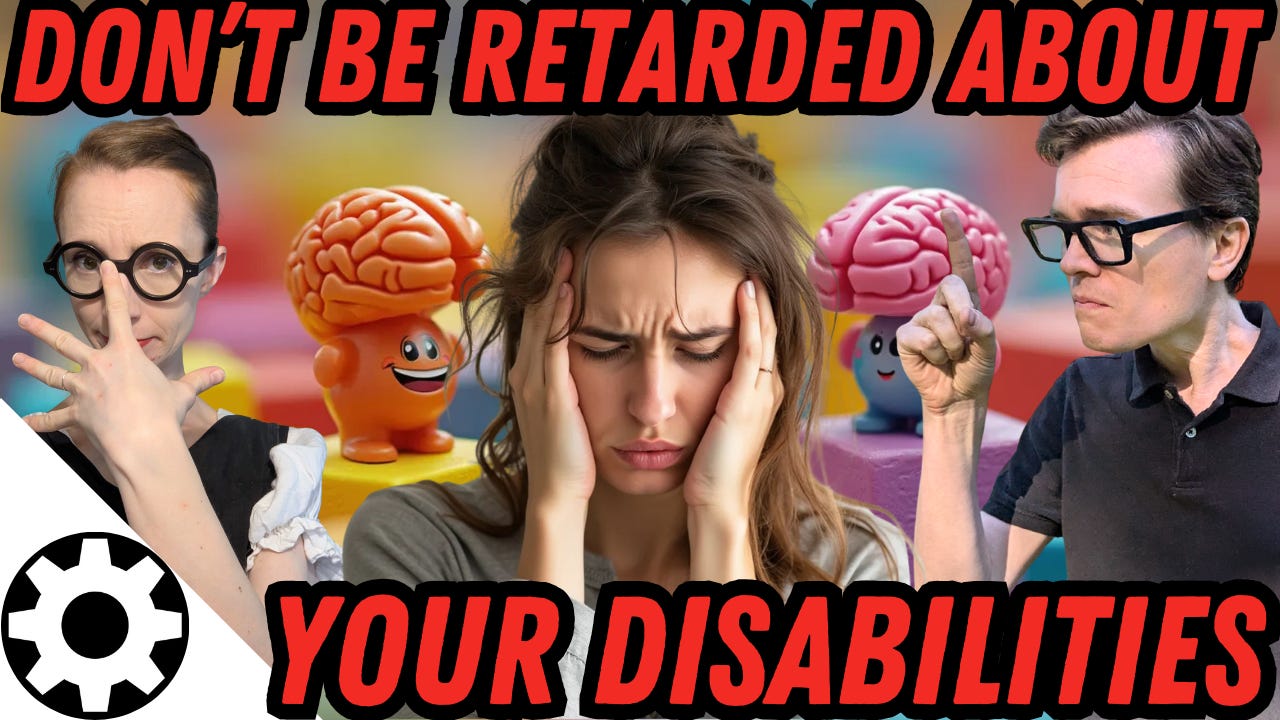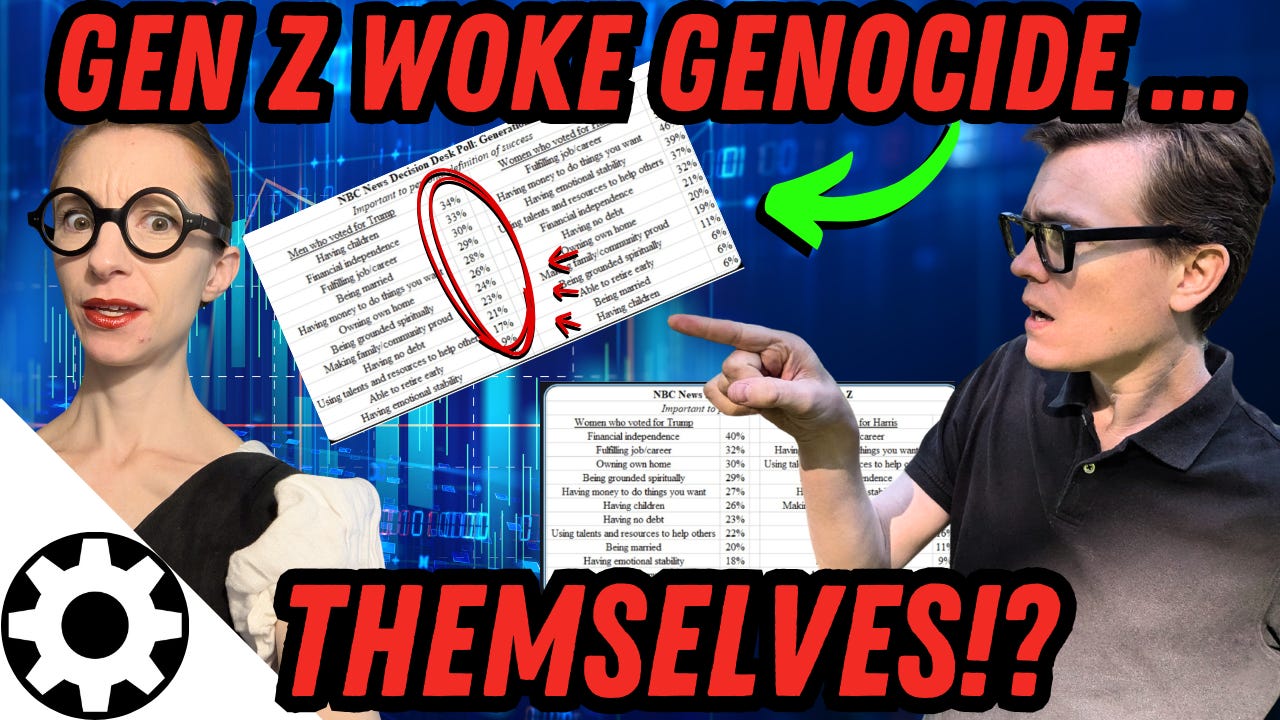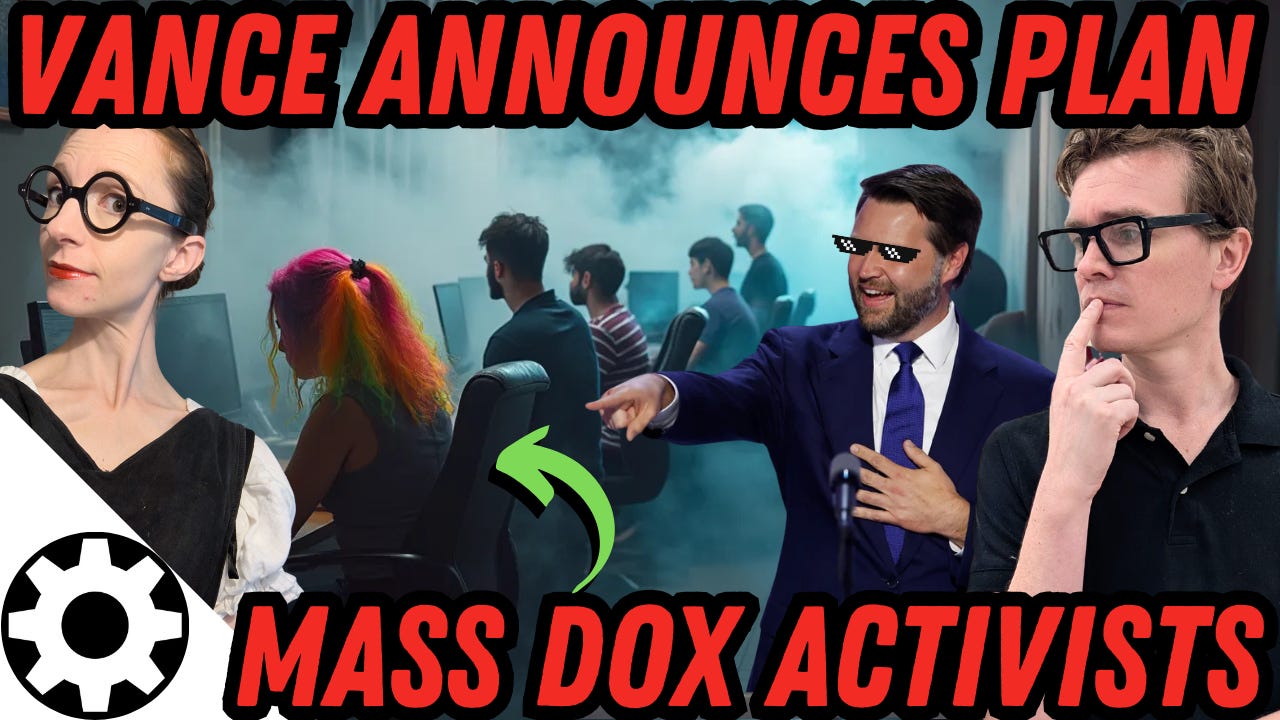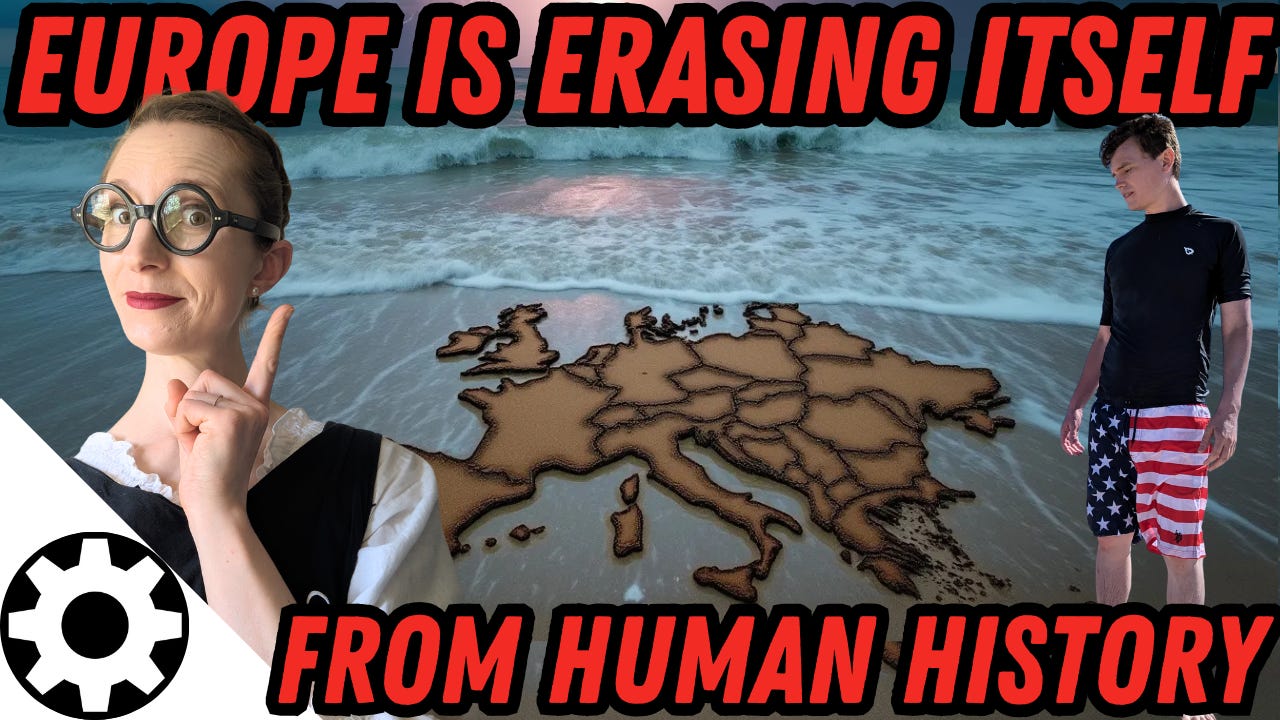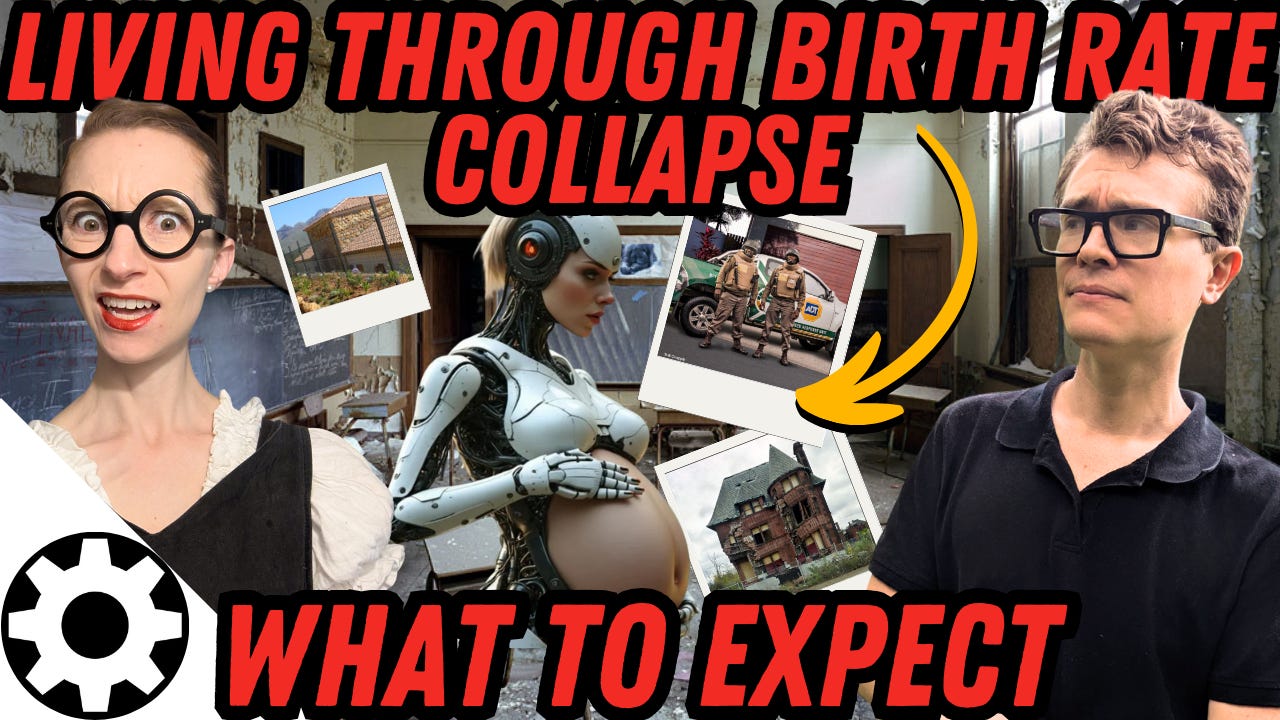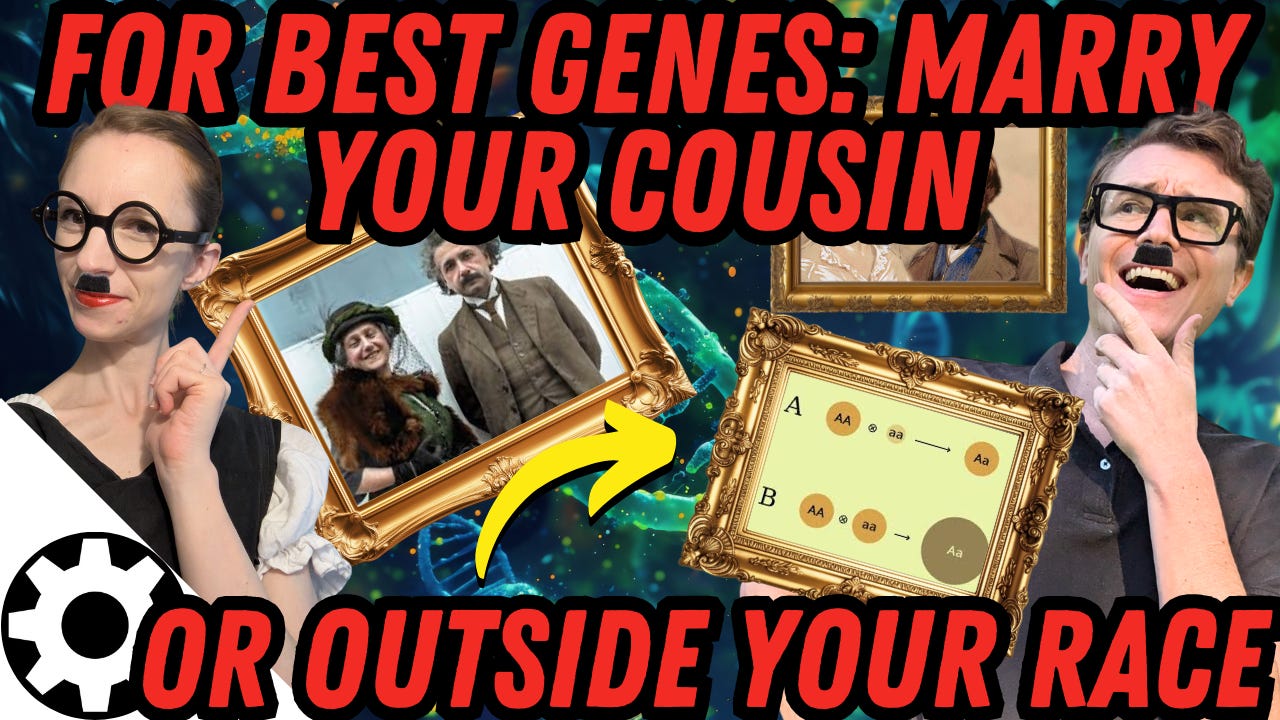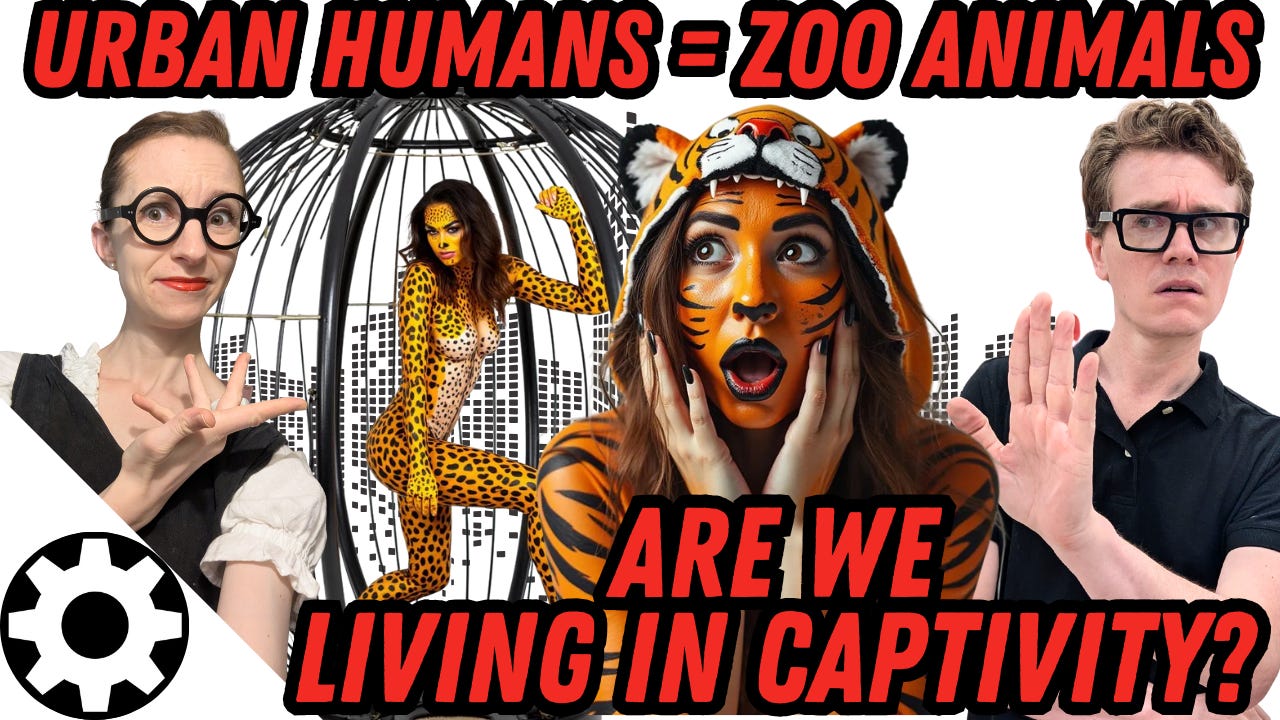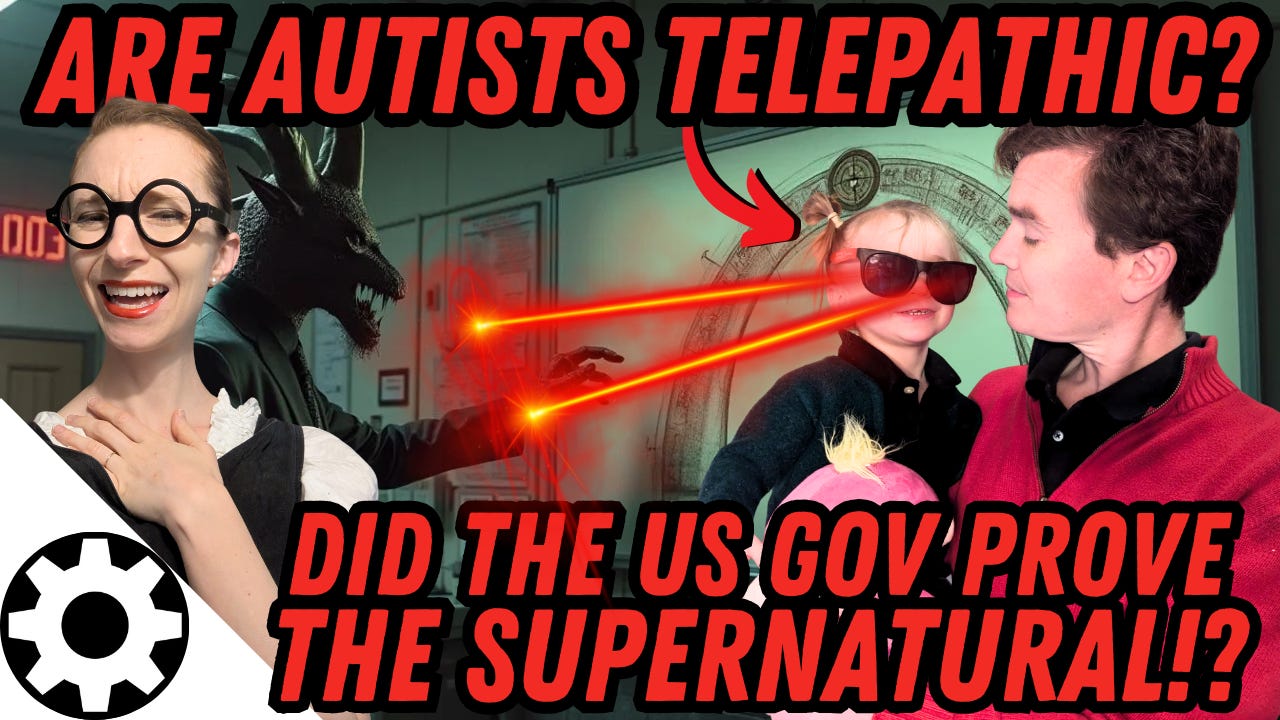Disability Maxxing: The Race to Retardation
Description
In this episode of Based Camp, Simone and Malcolm Collins dive deep into the realities of living with disabilities—both visible and invisible. They challenge the mainstream narratives around disability, self-diagnosis, and identity, sharing personal stories about dyslexia, autism, ADHD, and more. The conversation covers the evolution of what society considers a "disability," the dangers of over-identification, the impact of self-diagnosis, and practical advice for thriving with differences. Whether you’re disabled, neurodivergent, or just curious, this episode offers a candid, sometimes controversial, and always insightful look at what it really means to be “disabled” in today’s world.
Episode Transcript:
Simone Collins (2): [00:00:00 ] I don't know. Every time I hear someone talk about their disability, I just think of that IT Crowd episode.
Moss: You are disabled. What? Why not? You're not disabled. You're getting in trouble. . It's illegal. I don't think so.
Hello? Hello. You are right now. Um, do you need help? I'm disabled. Move back. What are you doing? Don't panic from the dog. What? No.
So, uh, what happened? I'm disabled. How, how, what? Yeah. How are you disabled? Uh, they're disabled. Wait, I'm being. Do you have a [00:01:00 ] wheelchair? Yes. Yeah.
Stolen.
Simone Collins (2): And the scene of him being lifted down from a bus very slowly in his wheelchair, looking so humiliated and embarrassed and like feeble, attempting to look feeble. It's the best. That is, that is what being disabled is.
Would you like to know more?
Simone Collins (2): Hello Malcolm. It's so exciting to be speaking with you today because we are both disabled, but we're not disabled the way you would think that it's to say we don't identify with it. A lot of people have asked us to talk about this because. They too have various diagnoses and they wanna know how to, well, what you said
Malcolm Collins: is stop being retarded about being retarded.
Simone Collins (2): That's the problem. Yes. People are being way too retarded about being disabled, and I think that we should talk about the right way to dis disabilities. Well, because they're
Malcolm Collins: engaging with, in our society, teaches them to [00:02:00 ] engage with a disability in a way that is really, really. Destructive. Yeah. And where this came up in one of our episodes is I was reading about Gavin Newsom.
And Gavin Newsom had this sob story about how difficult it was to grow up with dyslexia. Oh. And when I was reading it, I was like, I just, you know, his learning disability and everything like that, it just sort of occurred to me, and it hasn't occurred to me in, in maybe half a decade that I have dyslexia.
And,
Simone Collins (2): and then that prompted people to say, okay, well I have dyslexia and I struggle with it. How did you overcome it? And someone else wanted to know, well, what's, because you called it a learning inconvenience, not a learning disability. And they're like, well, what's the difference between a learning inconvenience
Malcolm Collins: and a learning disability?
Like literally Simone and you, and you can back this up. When was the last time you think I have mentioned having dyslexia to you or anyone before that episode
Simone Collins (2): and I'm, I mean I think you'd mentioned having it like once or twice
like, it was only one of those things of like, it didn't matter to you and it, it, it didn't affect [00:03:00 ] your life.
And yet, you know, we have good friends who've gone to like a. Disability camps for dyslexia only. Literally, literally
Malcolm Collins: the only time. And, and Simone is diagnosed with autism, right? So again, like this is something, the only time I remember it mattering in my entire life was trying to remember the difference between a B and a D which I severely struggled with.
But other than that, it was completely irrelevant throughout the rest of my life. People think that
Simone Collins (2): your mispronunciations are a result of your dyslexia.
Malcolm Collins: Yeah, I, I, I was diagnosed by psychol psychologists about this, and one of the reasons why when somebody's like, what's the difference between a learning and convenience and a learning disability, I suppose as somebody who has a plethora of bows it's, it's how much it actually ended up impacting my life.
The, the yeah. One that hit me the most growing up by far the most much more than likely Simone's autism, or I would think even, you know, like having one arm or something like that, is I have dysgraphia. Oh. Which means I cannot hand write. So I cannot, and Simone made jokes about this when we [00:04:00 ] were dating and stuff like that, said I'd come home and I give her a.
A writing or something and she'd go over and she'd be like, Malcolm, like, did you, what was it you thought that I had like tutored up?
Simone Collins (2): Yeah. So Malcolm comes home and he leaves on the table this like drawing and a little bit of writing and it's like this, this like stick figure of a man and drawing that like literally looks like a first grader did it.
If I can find, I think I took a photo of it. If I can find it, I, I've gotta put it up and I put it on the fridge and I was like, oh man. Like at, at the Stanford Business School, they must have some done, some kind of big brother, little brother like thing, you know where the, they brought in kids and you talked with them about business.
Speaker 2: You're like, oh, you put that on the fridge? And I'm like, yeah. Like, who were you working with? And you're like, I did that.
Malcolm Collins: Yeah. And so I going back to when you first learned to write in school, I had to use something and only people who like, have disabilities would know about this, called an Alpha Smart never heard this.
So they don't want you to be able to use spell check or any computer [00:05:00 ] augmented things to help you write. But because you can't hand write, they need to give you something to write with. And so it's a simple computer that can only write strings of texts. And then you plug it into, so it's like a typewriter?
Simone Collins (2): It's basically a typewriter, but digital.
Malcolm Collins: It's like a digital typewriter. Yeah. Okay. And so that's what I would use for everything in classes and everything like that. Wow. And I was also incredibly slow at writing as well, which also really, and this is the other thing like. That's so crazy 'cause you've written five books.
There are things that didn't impact me as much as, the reason I call dyslexia Learning Inconvenience is there is just random genetic variation that impacted me dramatically more. Like, for example, I am terrible at languages. I took Spanish because I grew up in. Right. I, I lived in Spanish speaking countries at times as a kid, and because I live in Texas, you take Spanish every year from kindergarten.
I didn't pass Spanish one. That is your first year of Spanish until my junior to senior year in high school. That meant [00:06:00 ] I failed Spanish. Every single year of my formal education. No, you're like literally
Simone Collins (2): a language retard. Like literally you are retarded. I'm literally a language retarded.
Speaker 6: Now who can tell me what famous person wrote the Declaration of Independence? Let's see. Oh, I know. How about the new student, Timmy, Tim? No, it wasn't you. Timmy. Try again. Timmy. Did you not do your homework? Come. Uh, Mr. Garrison, haven't you figured it out? Timmy's retarded. Don't call people names Stanley, but he is now.
Timmy, you need to work on your study skills. Are you mocking me? Because if you are, I have no problem sending your butt to the principal's office. That dumb.
Simone Collins (2): Yeah.
Malcolm Collins: Now that is not something I am diagnosed with.
That impacted me dramatically more than dyslexia. Another thing. Well, but that's
Simone Collins (2): the thing, and like a big point here though, is that this, the definition of disability has much more to do with what makes you. Non-compliant or non-functional in [00:07:00 ] some way within a typical environment. And because your typical environment doesn't involve you needing to be bilingual, that in itself doesn't come up as a disability.
I
Malcolm Collins: actually disagree with this very strongly, really. So I was about to mention the second thing that has impacted me way more than dyslexia. Yeah. The second thing that's impacted me way more than dyslexia is that I am a very slow writer and sort of processor of information thinker more broadly.
Yeah, I just think very slowly. And what this means is that in class. I, I, I couldn't take notes. So what I'd always do is for every single class that I did in college, I recorded it on a recorder. Then I went back to my room and I played it and slow speed and typed it out. Wow. And then I went over that and memorized that.
The amount of, now this is not a, this is something everybody has to do, and it wasn't due to any recognized disability. No, no,
Simone Collins (2): no. I disagree because in college, one of the ways that I made money. And this was, the school paid me to do this was there were students who had exactly the same problem, and I took notes for [00:08:00 ] them.
Malcolm Collins:</str

